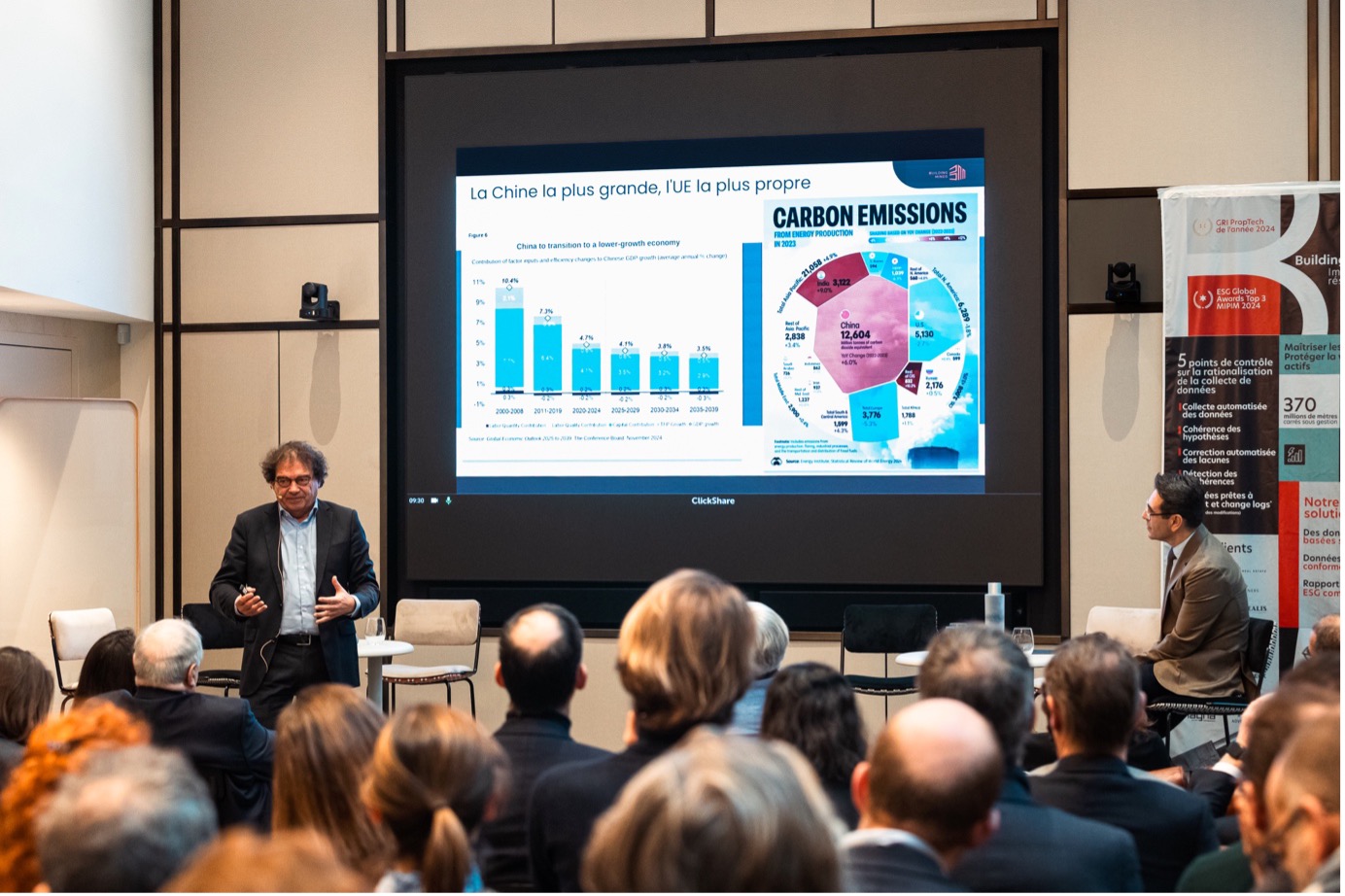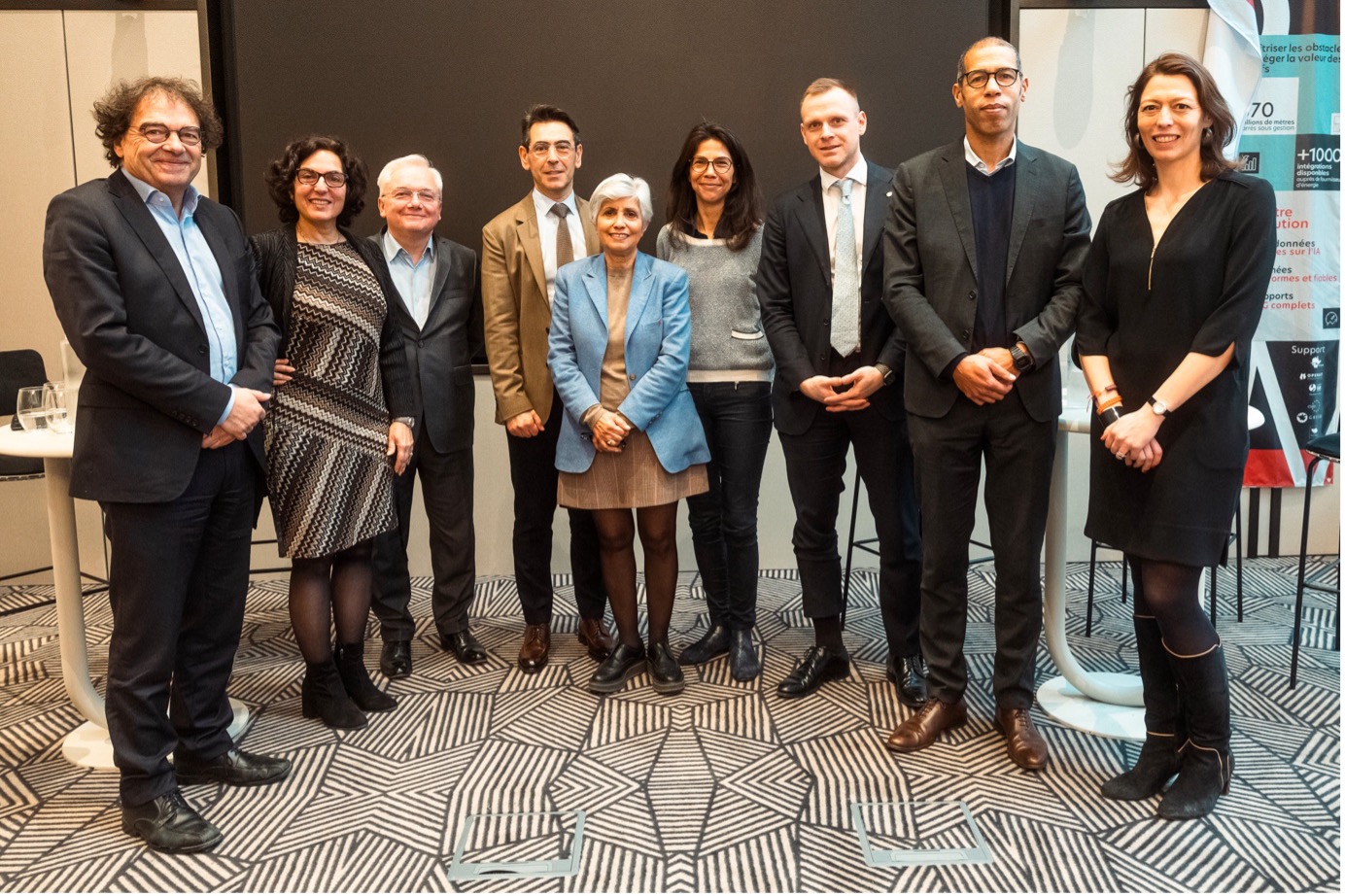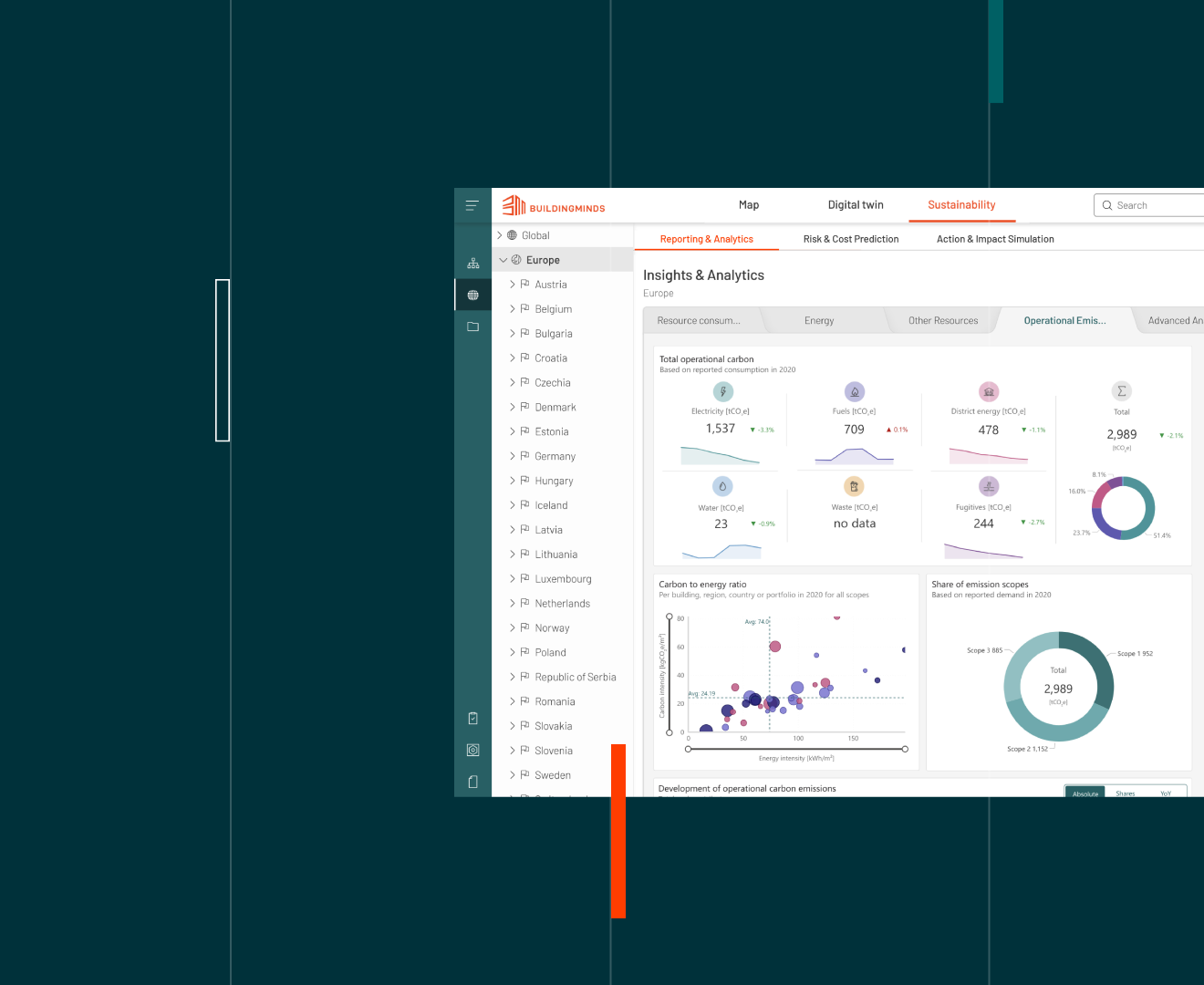BuildingMinds Inspires New ESG Resolutions For 2025

On December 17, 2024, BuildingMinds organized its first seminar in France, a debate aimed at real estate asset managers on the theme of improving ESG (Environmental, Social and Governance) performance. This event provided participants with numerous avenues for reflection and action to improve their performance in real estate, a sector that currently represents over 10% of France's GDP (EY, 2023).
"There is no doubt that the real estate sector holds the key to achieving Net Zero goals and ensuring that our cities are resilient and sustainable. It also highlighted the opportunity for the sector to come together as a whole, inspire collaboration and ultimately drive the transformative change we urgently need,” commented Tina Paillet, President of RICS 2024. “Thank you to BuildingMinds for organizing this seminar, which gave RICS members - part of a leading global professional body in built and natural environments - the opportunity to debate the issues facing our sector and inspire action."
After Rudy Aernoudt, economist, philosopher, author, columnist and professor at the Universities of Ghent and Nancy, Tina Paillet, President of the RICS, and Méka Brunel, President of the Palladio Foundation, joined Virginie Wallut, Director of Research and Real Estate SRI at La Française Real Estate Managers, Émilie Jaskula, Global Head of Office at AXA IM Alts, and Thierry Laquitaine, Director of SRI at AEW.
"These are turbulent times for real estate funds and for SRI, but it's vital to continue to demonstrate our convictions, while ensuring that all stakeholders are mobilized. To do this, it's essential to speak a common language and share KPIs with all players across the real estate value chain,” commented Virginie Wallut.
The seminar was hosted by Philippe Boyer, Director of Institutional Relations & Innovation, and Jean-Éric Fournier, Covivio's Chief Sustainability Officer, who introduced and concluded the discussions.
The first speaker, Rudy Aernoudt, reminded the audience of asset managers and real estate investors that the EU needs to invest between 4.4 and 4.7% of its GDP in the ESG (Environment, Social and Governance) sector to achieve its objectives, i.e. a total of 750 to 800 billion euros, with a current shortfall of 300 billion to be made up by private capital.
This was the opening theme of a roundtable discussion entitled “Transforming the real estate industry: sustainability and risk mitigation strategy”, organized by BuildingMinds, a leader in sustainable real estate management. The event explored practical strategies that could support the industry in achieving its goals.
Discussions highlighted the crucial importance of implementing actions relating to environmental strategy in a sector representing over 10% of French GDP, to ensure that regulatory compliance is not the only priority. Although global emissions from the building sector have risen by an average of 1% a year since 2015, investments dedicated to energy efficiency have recorded a decline of 7% between 2022 and 2023. This trend may reflect the opinion of 45% of participants in BuildingMinds' international survey, who identified the costs associated with green practices and materials as one of the main barriers to growth.

Prof. Aernoudt's introductory remarks, describing the alignment of financial and sustainability perspectives in the service of decarbonizing the real estate sector, resonated with many participants.
He pointed out: “We found that in Belgium, a market facing the same imperatives as France, companies in the real estate sector have to devote 3% of their sales to financing their transition. Around 60% of these companies have the resources to make this investment, while 20% lack the means to carry out energy improvements or invest in a building management system (BMS). Nevertheless, European banks, particularly the French ones, are becoming increasingly demanding, particularly when it comes to ESG criteria.”
Global problem, global solutions
The stimulating discussions, moderated by José Pereira, Sales Director for Southern Europe at BuildingMinds, highlighted outstanding examples from across Europe and beyond, and showcased a variety of innovative solutions for mitigating the risks associated with climate change.
The first example cited, concerning around 85% of the city of Rotterdam located below sea level, perfectly illustrates the flood protection measures implemented in this Dutch city. The discussion highlighted the construction of floating quarters using reusable and recyclable materials as a safer and more pragmatic solution than traditional sea barriers.
Another case study looked at the regeneration of the previously highly industrialized city of Bilbao, Spain. The city demonstrated how its renewal was achieved by focusing on improving green spaces, which contributed to a 38% reduction in greenhouse gas (GHG) emissions between 2005 and 2018 as mentioned by Tina Paillet.
Finally, the zero waste master plan of Singapore, a market entirely dependent on imported building materials, was highlighted as an example of how a circular economy can work on a large scale with the right incentives. The plan calls for the reuse of materials and the incineration of waste. One of the key topics discussed was the massification of reporting, pointing out that, although reporting obligations are often perceived as a necessary but cumbersome process, Virginie Wallut of La Française Real Estate Managers suggested that the main virtue of this reporting exercise is the awareness of priority issues, leading to the adaptation of action choices and the organization of benefit measurement. He went on to point out that reporting allows us to develop a common language, which is nonetheless very important. The end result is to avoid “dispersion” of actions and impact.
Pointing out that the building sector is highly regulated, Thierry Laquitaine mentioned that in France, there are over 3,000 regulations. He pointed out that there is a real issue of access to resources and consistency of texts, between texts that require the production of indicators and other texts that stipulate that tenant data is private and confidential. These sentiments were echoed by Méka Brunel, who reminded the audience that we can only control what we can quantify.

These debates were then relayed on LinkedIn:
In a European financial context where banks are lending less and less, it's up to companies to find new sources of financing,” noted Chloé Yoro, ESG manager at Sogenial Immobilier. ”
“Beyond the necessary awareness, we must commit to a coherent and ambitious strategy to reduce the carbon footprint of each of our assets. This strategy is also embraced by all our partners, especially hoteliers!” commented Thomas De Clercq, deputy managing director of hotel investment company Courbet Heritage. “We have this vision and deploy an ESG strategy at the level of each of our assets, both in the repositioning phase, then in the operating phase, as well as at the corporate level.”
Stéphane Carpier of N'CO Conseil summed up: “The conference summed up the commitments of many players, bringing 2024 to a fitting close and paving the way for 2025 under the best possible auspices. Leading companies are demonstrating the relevance of integrating energy performance, low-carbon emissions, climate change resilience and biodiversity into their asset management processes, in order to guarantee the long-term value of their assets, secure bank financing and find new sources of investment."
Check the full article in the original language here



